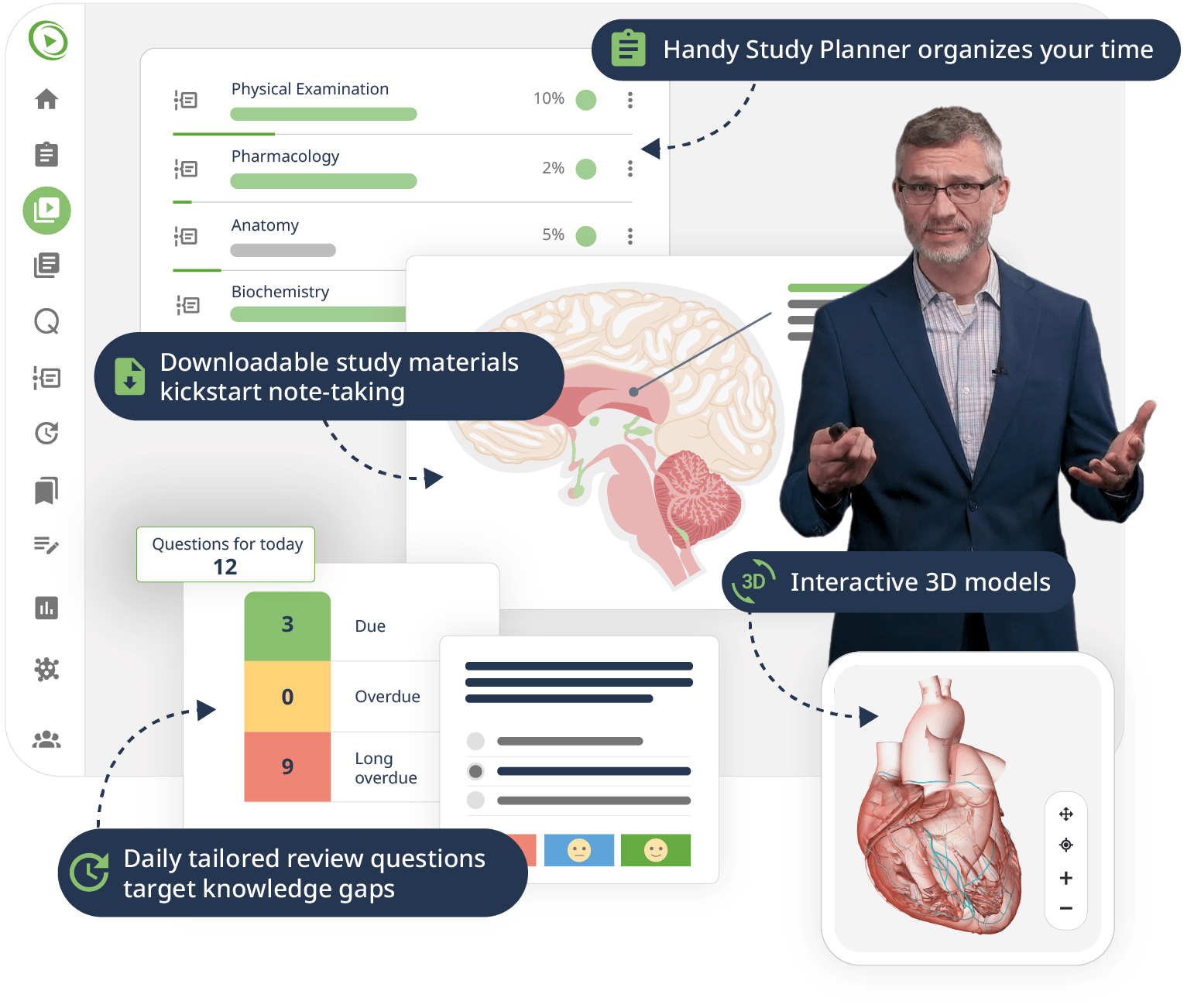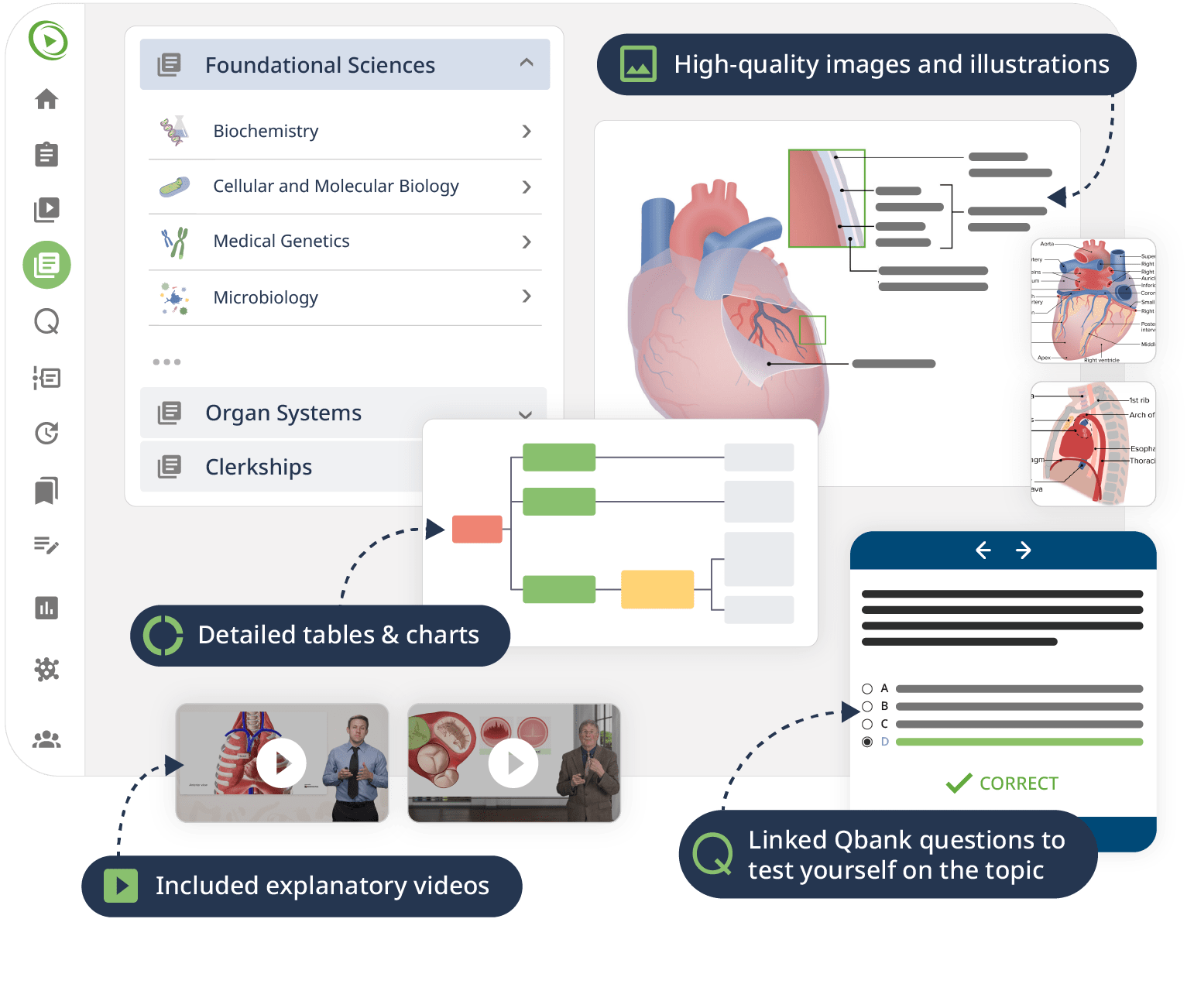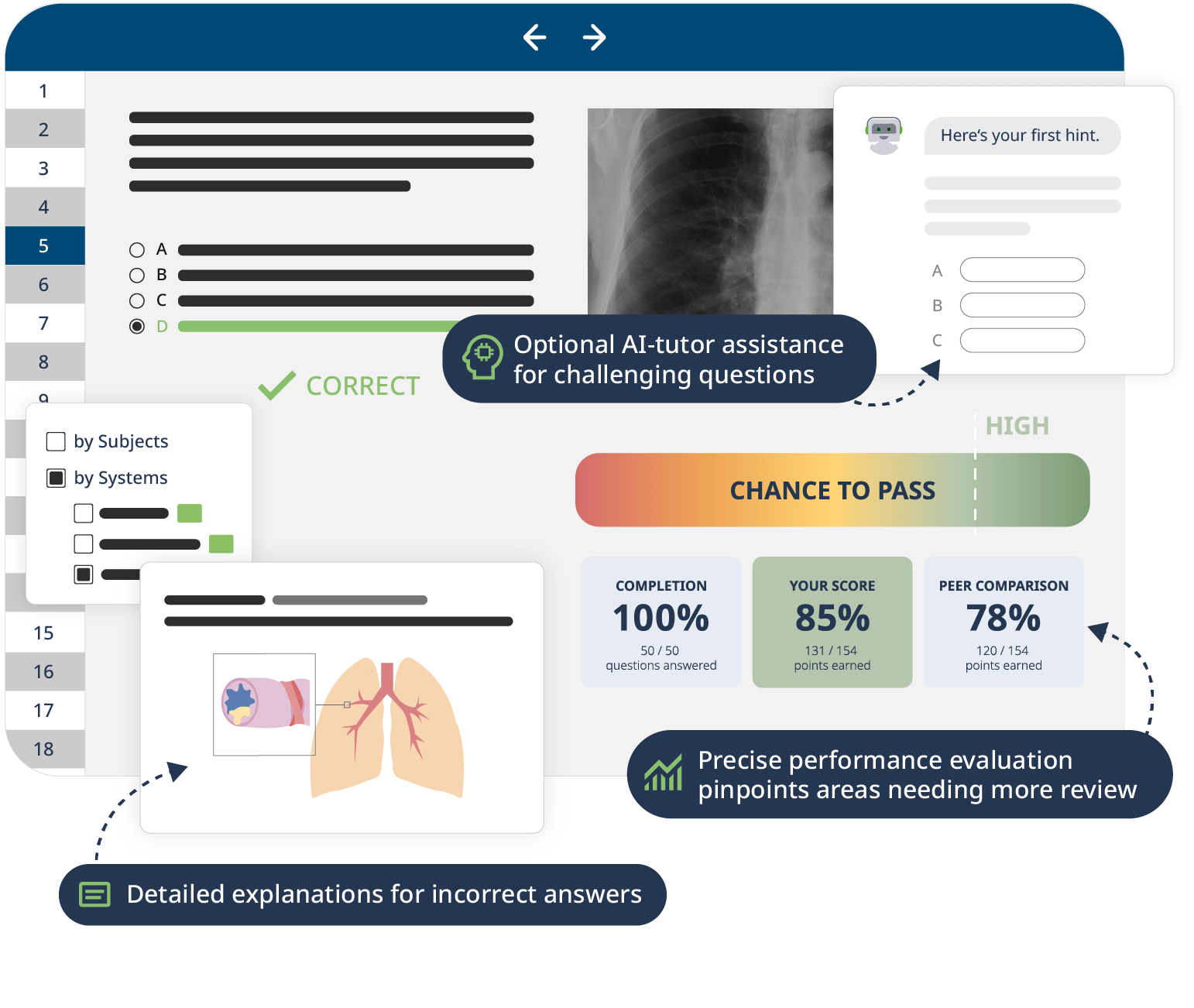Start your online oncology course
with experienced educator Carlo Raj, MD
Oncology is at the forefront of medical advancements, critically impacting patient outcomes and the success of treatment protocols. Understanding the intricacies of carcinogenesis and neoplasia across various organ systems requires a deep understanding of complex biological processes and poses a significant challenge.
This course covers the key topics of oncology, including the principles of neoplasia, carcinogenic conditions such as leukemia, lymphadenopathies, various systemic neoplasms, CNS tumors, and neoplastic skin diseases. Carlo Raj, MD, an experienced educator known for his distinctive and effective teaching style, will guide you through these complex topics, making challenging concepts more accessible and engaging.
The combination of Video Lessons with interactive quiz questions, downloadable study materials, and a USMLE-style Qbank makes it easy to understand and retain the topics. By the end of this course, you will have a robust understanding of oncology basics and be equipped with the knowledge to tackle the complexities of cancer diagnosis and treatment in your future medical practice.


















